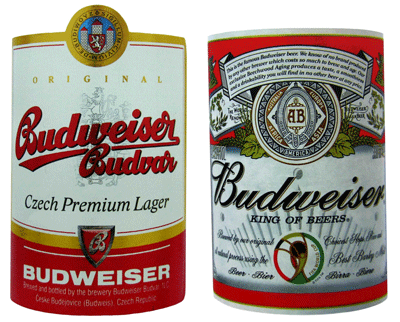 HvJ EU, 3 februari 2011, conclusie A-G Trstenjak in zaak C-482/09, Budějovický Budvar, národní podnik tegen Anheuser-Busch, Inc. (Prejudiciële vragen Court of Appeal of England and Wales).
HvJ EU, 3 februari 2011, conclusie A-G Trstenjak in zaak C-482/09, Budějovický Budvar, národní podnik tegen Anheuser-Busch, Inc. (Prejudiciële vragen Court of Appeal of England and Wales).
Merkenrecht. Nieuwe paragraaf in de inmiddels zeer omvangrijke Budweiser-Budvar sage. Na een afgewezen oppositie zijn Buweiser-merken van beide partijen ingeschreven in het Britse merkenregister. Precies 4 jaar en 364 dagen later vordert Anheuser de nietigheid van het merk van Budvar, d.w.z. op de laatste dag voor het verstrijken van de (gedoog)termijn van vijf jaar. Het merk van Anheuser zou net iets eerder zijn ingeschreven. De prejudiciële vragen zien op de gedoogperiode, o.a:
Indien "gedoogd" een gemeenschapsrechtelijk begrip is, kan de merkhouder dan worden geacht een langdurig en eerlijk gebruik van een identiek merk te hebben gedoogd, wanneer hij al lange tijd van het gebruik op de hoogte was maar niet in staat om het te verhinderen? Wanneer begint de periode van "vijf opeenvolgende jaren" en, in het bijzonder, kan deze periode beginnen (en, zo ja, kan zij eindigen) vóórdat de houder van het oudere merk het merk feitelijk heeft laten inschrijven; en, zo ja, aan welke voorwaarden moet zijn voldaan om deze periode te doen aanvangen? De A-G concludeert dat ‘gedogen’ een geharmoniseerd begrip is, maar dat er i.c. een mogelijk temporeel probleem is m.b.t. de toepasbaarheid van de richtlijn en dat het verder vooral een zaak voor de nationale rechter is.
124. In summary, it must be concluded that neither the retroactive application of Article 4(1)(a) of Directive 89/104 nor the application of that provision from the date of entry into force of the directive is possible in the main proceedings. It is thus unnecessary to answer the individual questions referred. The Court ought therefore to give the following answer:
– Article 4(1)(a) of the directive is temporally not applicable to a situation such as that at issue in the main proceedings.
– Consequently, in a case such as that at issue in the main proceedings, it must be decided in accordance with national law whether the proprietor of an earlier trade mark may apply for a mark to be refused registration or, if registered, to be declared invalid even where there has been long-established honest concurrent use of those marks for identical goods.
125. Should the Court, contrary to the view put forward here, assume that Article 4(1)(a) of Directive 89/104 is temporally applicable in a situation such as that at issue in the main proceedings, the questions referred would have to be answered as follows:
– The concept of ‘acquiescence’ within the meaning of Article 9(1) of the directive is an independent concept of European Union law which must be given a uniform interpretation in all Member States. It presumes that it is legally possible for the proprietor of an earlier trade mark to oppose the use of a later registered mark which because of its identity with or similarity to the earlier mark and the identity or similarity of the goods or services covered by the two marks entails a risk of confusion on the part of the public.
– The proprietor of an earlier mark does not have to have it registered before his ‘acquiescence’ in the use of a later mark by another person in the same Member State can start. The period of acquiescence laid down in Article 9(1) of the directive starts running from the date on which the proprietor of the earlier mark becomes aware of the use of a later registered mark in that Member State. The period of acquiescence can thus start on the date of registration at the earliest, if the later mark is used from that date and the proprietor is aware of that use. The period of acquiescence can start running, and may also end, before the proprietor of the earlier mark has had his mark registered.
– Article 4(1)(a) of the directive precludes in principle the long-established honest concurrent use of two identical marks covering identical goods by two different proprietors of the marks.
126. In the light of the foregoing considerations, I propose that the Court should give the following answer to the reference for a preliminary ruling from the Court of Appeal of England and Wales:
(1) Article 4(1)(a) of First Council Directive 89/104/EEC of 21 December 1988 to approximate the laws of the Member States relating to trade marks is temporally not applicable to a situation such as that at issue in the main proceedings.
(2) Consequently, in a case such as that at issue in the main proceedings, it must be decided in accordance with national law whether the proprietor of an earlier trade mark may apply for a mark to be refused registration or, if registered, to be declared invalid even where there has been long-established honest concurrent use of those marks for identical goods.
Lees de conclusie hier.
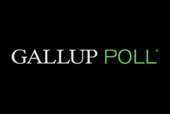 Gerechtshof Amsterdam, 15 februari 2011, zaaknr. 200.00.844/01, Gallup Inc. tegen Gallup Intenational Association, Gallup Foundation en TNS NIPO B.V. (met dank aan Paul Steinhauser, Arnold+Siedsma & Peter Claassen en Martin Hemmer, AKD).
Gerechtshof Amsterdam, 15 februari 2011, zaaknr. 200.00.844/01, Gallup Inc. tegen Gallup Intenational Association, Gallup Foundation en TNS NIPO B.V. (met dank aan Paul Steinhauser, Arnold+Siedsma & Peter Claassen en Martin Hemmer, AKD). 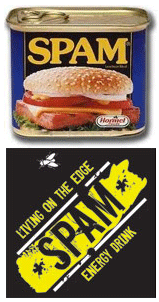 Rechtbank ’s-Gravenhage, 9 februari 2011, HA ZA 10-2388, Hormel Foods Corporation tegen Dukka B.V. & Van Doorne Beverages B.V.
Rechtbank ’s-Gravenhage, 9 februari 2011, HA ZA 10-2388, Hormel Foods Corporation tegen Dukka B.V. & Van Doorne Beverages B.V. Rechtbank Amsterdam, 26 januari 2011, LJN: BP4349, Monta Ltd c.s. tegen Masters Of The Game B.V.
Rechtbank Amsterdam, 26 januari 2011, LJN: BP4349, Monta Ltd c.s. tegen Masters Of The Game B.V.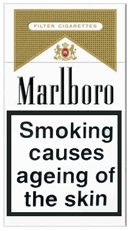 Gerechtshof Arnhem, 10 november 2009, Strafzaak tegen T. (met dank aan Leonie Kroon,
Gerechtshof Arnhem, 10 november 2009, Strafzaak tegen T. (met dank aan Leonie Kroon,  Rechtbank Rotterdam, 2 februari 2011, HA ZA 05-2728, MAN Truck & Bus B.V.c.s. en MAN tegen NHG Trans International c.s. (met dank aan Eva de Vries,
Rechtbank Rotterdam, 2 februari 2011, HA ZA 05-2728, MAN Truck & Bus B.V.c.s. en MAN tegen NHG Trans International c.s. (met dank aan Eva de Vries,  Rechtbank Zwolle, 13 oktober 2010, LJN: BO9989, Desso Group, & Enia Carpet c.s. tegen Cotap & Vloer Totaal Concept, c.s.
Rechtbank Zwolle, 13 oktober 2010, LJN: BO9989, Desso Group, & Enia Carpet c.s. tegen Cotap & Vloer Totaal Concept, c.s. Rechtbank ‘s-Gravenhage, 4 februari 2011, KG ZA 10-1438, Tempur Benelux B.V. c.s. tegen Medicomcomfort B.V. (met dank aan Helen Maatjes,
Rechtbank ‘s-Gravenhage, 4 februari 2011, KG ZA 10-1438, Tempur Benelux B.V. c.s. tegen Medicomcomfort B.V. (met dank aan Helen Maatjes,  HvJ EU, 3 februari 2011, conclusie A-G Trstenjak in zaak C-482/09, Budějovický Budvar, národní podnik tegen Anheuser-Busch, Inc. (Prejudiciële vragen Court of Appeal of England and Wales).
HvJ EU, 3 februari 2011, conclusie A-G Trstenjak in zaak C-482/09, Budějovický Budvar, národní podnik tegen Anheuser-Busch, Inc. (Prejudiciële vragen Court of Appeal of England and Wales).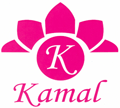 Rechtbank ’s-Gravenhage, 2 februari 2011, HA ZA 08-3222, Eiser tegen Gedaagde
Rechtbank ’s-Gravenhage, 2 februari 2011, HA ZA 08-3222, Eiser tegen Gedaagde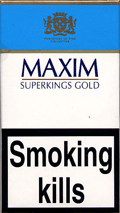 Rechtbank ’s-Gravenhage, 2 februari 2011, HA ZA 08-4075, Reemtsma Cigarettenfabriken GmbH tegen Maxim Markenproducte GmbH & Co KH
Rechtbank ’s-Gravenhage, 2 februari 2011, HA ZA 08-4075, Reemtsma Cigarettenfabriken GmbH tegen Maxim Markenproducte GmbH & Co KH


























































































